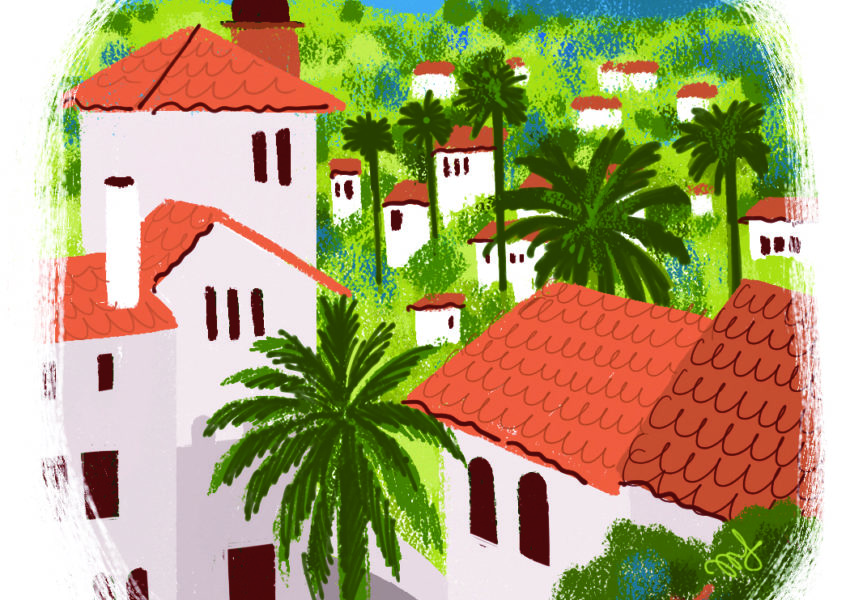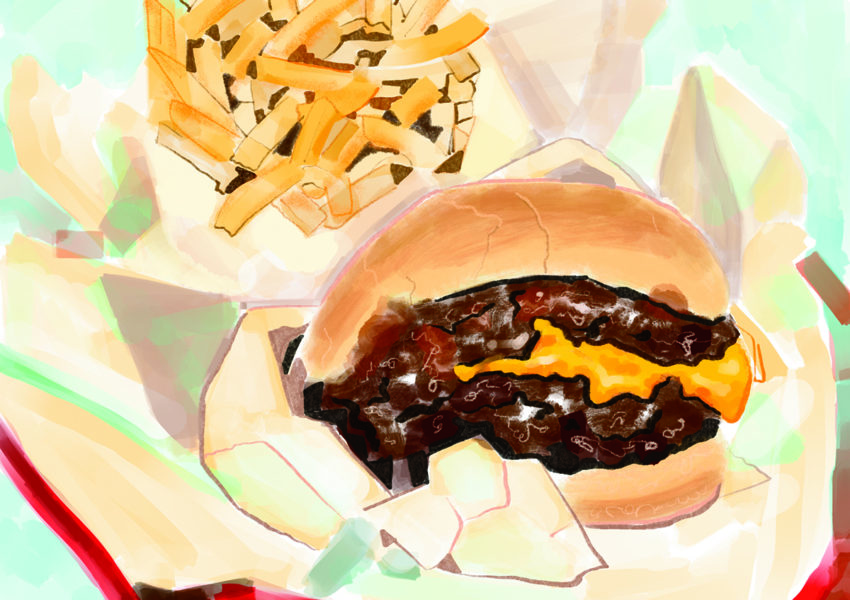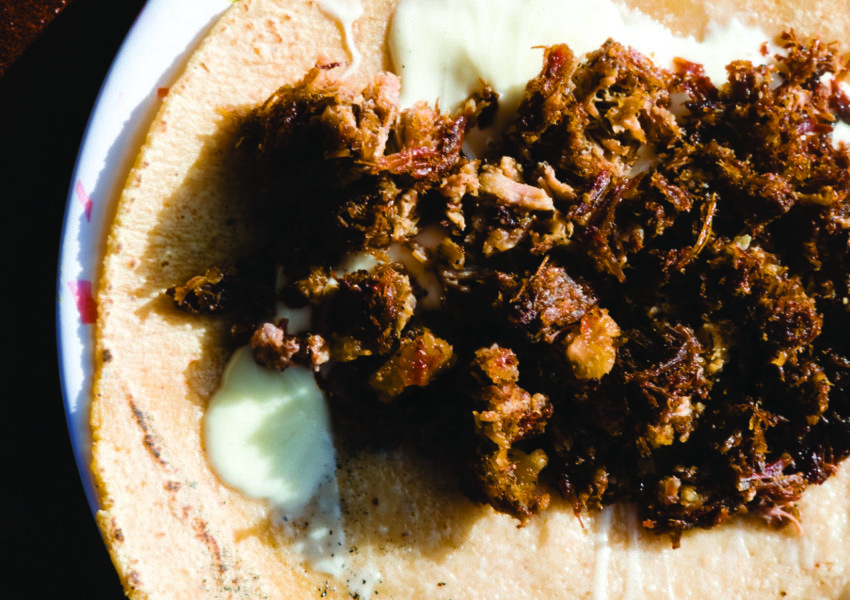Harvest of Paternalism Revisiting a classic
by Gustavo Arellano
I never cared for Thanksgiving—the buckets of leftovers, the excess of casseroles, the faux chumminess from cousins who can’t even bother to like your Instagram posts.
So the coronavirus pandemic gave me an understandable excuse to skip out on a big gathering and stay at home with a bourbon in one hand and a documentary on my laptop.
I watched Harvest of Shame, a legendary one-hour CBS special that originally aired the day after Thanksgiving 1960. It was hosted and narrated by Edward R. Murrow, in one of his last journalistic efforts before leaving the network to join the Kennedy administration.
Harvest of Shame was groundbreaking. Not since Upton Sinclair’s The Jungle had a piece of mainstream media attacked the American food industry with such righteous anger. It’s remembered as a masterpiece and seen as the culmination of a career.
Sixty years later, the film is a mainstay of film and labor-history courses and shared in food-justice circles. Its indicting conclusion sadly remains true today—how Eisenhower’s America, home to the “best-fed people in the world,” ignored the “workers in the sweatshops of soil” who kept them fed.
It had been years since I’d watched Harvest of Shame. This time, I caught a crucial flaw. Murrow sought to shock a complacent American public into action. But to do so, he and his crew took agency away from the very workers they purported to champion: poor Black and white Southerners.
![]()

![]()
Harvest of Shame begins in Belle Glade, Florida, which remains the heart of sugarcane production in the state. From there, hundreds of Black men, women, and children cram into buses and trucks to follow the winter harvest north along U.S. Route 17.
“This is not taking place in the Congo,” says Murrow in his unforgettable baritone. “It has nothing to do with Johannesburg or Cape Town…This is Florida. These are citizens of the United States.”
Cameras follow these buses to small towns where the men, women, and children stay for a couple of weeks to work, then move on to the next harvest. Elizabeth City, North Carolina, for beans. Powell’s Landing, Virginia, for corn.
Along the trail, Murrow’s reporters interview migrant workers in the shantytowns that pass as their neighborhoods. Nearly all of them wear stoic, defeated expressions. “Do you ever think you’ll get out of this work?” one asks Allean King, a twenty-nine-year-old mother of fourteen. “No, sir,” is her reply.
The cameras fan out from the Southeast to points north and west. The only glimmers of hope for farmworker reform are anywhere but the South, Harvest of Shame argues. In New York, Black teachers vainly try to teach children as much as possible before they go back home, probably to drop out of school.
And out in the Central Valley of California, one scene shows Filipino, Latino, and white pickers attending an AFL-CIO meeting to urge unity and union. Cesar Chavez would soon emerge from that very area to organize them.
“This is not taking place in the Congo. It has nothing to do with Johannesburg or Cape Town…This is Florida. These are citizens of the United States.”
“The migrants have no lobby,” Murrow tells viewers at the end of the program. “Only an enlightened, aroused, and perhaps angered public opinion can do anything about the migrants.”
It was a stirring speech, I thought, as I closed my laptop to soak in what I had just seen. But I realized that Harvest of Shame displays a paternalism that hasn’t aged well, along with an absence of true systemic critique. It takes as fact that farmworker exploitation exists without examining the systems that make such abject conditions so easy to continue.
For a film with so many Black faces, a lack of acknowledgement that they were just two to three generations removed from slavery reads as insulting today. The closest reference to the white supremacy that continues to dominate the farming world is when Murrow quotes a farmer who admits, “We used to own our slaves. Now, we just rent them.”
Murrow’s biggest sin was his lack of faith in farmworkers, especially those in the South, to better themselves. Salvation, according to him, could only truly come from an activist government and the charity of liberal viewers. His rousing words did little for farmworkers. Harvest of Shame didn’t lead to any fundamental changes in our food system.
I know I’m applying twenty-first-century social-justice standards to Murrow, who never stood on the wrong side of history. The fact he chose as one of his last subjects such an explosive topic—and aired it right after Thanksgiving, no less—speaks to the integrity of the newsman.
I’d be more forgiving if there weren’t already voices in the media who not only had covered farmworkers, but had given them agency and acknowledged their potential power. I’m thinking of Carey McWilliams, longtime editor of The Nation, and of the photographer Dorothea Lange.
And the South would prove Murrow wrong. In one scene, Murrow informs viewers, “There is no case upon the record of a child of a migrant laborer ever receiving a college diploma.” A generation later, that would change, thanks to the University of South Florida’s Center for Migrant Education, which helps farmworkers and their children graduate from high school and college.
Murrow’s biggest sin was his lack of faith in farmworkers, especially those in the South, to better themselves.
Soon after Harvest of Shame aired, former sharecropper Fannie Lou Hamer used her childhood in the cotton fields of Mississippi to push Black people to vote. In more recent years, the North Carolina Farmworkers’ Project has spread the gospel of promotoras (community health workers) through the tobacco and sweet potato fields of Johnston County. Similar organizations in other Southern states have done the same.
And about an hour away from Belle Glade, the Coalition of Immokalee Workers (CIW) began in 1993 to push for a radical vision of equity and activism among Mexican, Central American, and Haitian tomato pickers in Florida. Their work has driven fast-food chains across the country to pay more for the crops they buy from Florida farmers, which has allowed farmworkers to double their salaries.
I now think of Harvest of Shame in a category with Let Us Now Praise Famous Men and Hillbilly Elegy. They are stylish, powerful works that purport to tell the truth about a damned South, yet they rely on clichés that obscure the agency of the subjects they claim to defend.
We must listen to farmworkers themselves, not self-appointed saviors, to see them clearly.
Gustavo Arellano is Gravy’s columnist and a features writer for the LA Times.
Top photo: Edward R. Murrow reporting on CBS REPORTS: HARVEST OF SHAME, a television documentary that showed the plight of American migrant agricultural workers, November 24, 1960. Image is a screen grab. (Photo by CBS Photo Archive/Getty Images)




